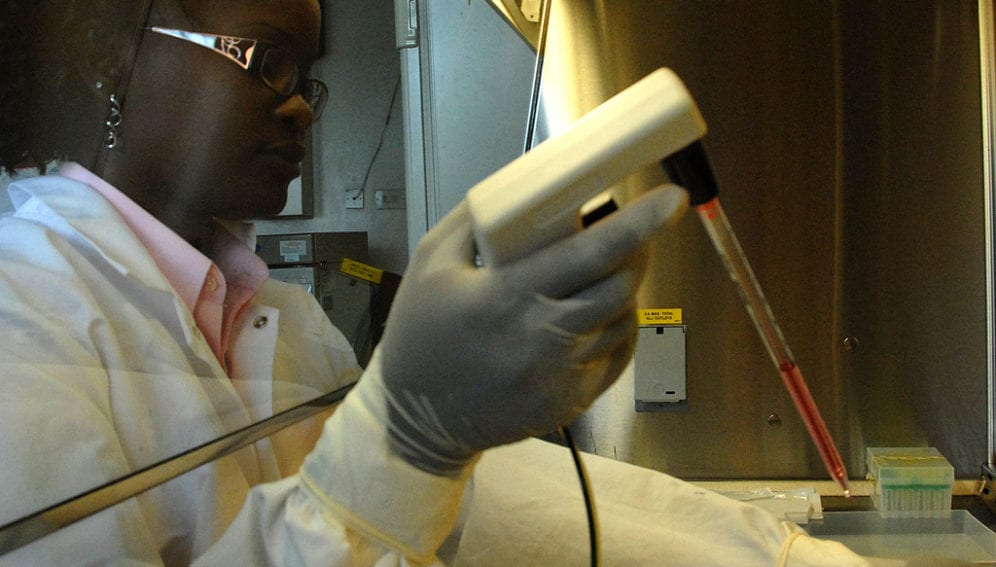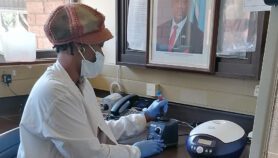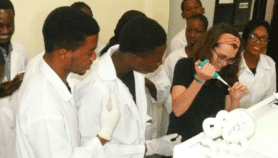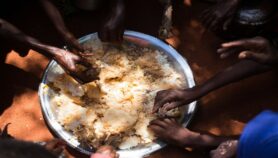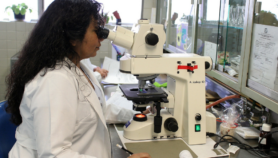Send to a friend
The details you provide on this page will not be used to send unsolicited email, and will not be sold to a 3rd party. See privacy policy.
[ACCRA] A training programme is helping Ghana and Zimbabwe build capacity in health research to provide local evidence for policymakers, researchers say.
Researchers implementing the programme — diploma in project design and management (DPDM) — say inadequate capacity for undertaking health research in Africa badly affects the ability of policymakers to have locally relevant evidence to guide their work.
The implementing partners include the UK-based Liverpool School of Tropical Medicine (LSTM), which awards the diploma, National Blood Service of Zimbabwe and Ghana-based Kwame Nkrumah University of Science and Technology (KNUST), the National Blood Service and the Komfo Anokye Teaching Hospital (KATH).
“The programme offers a low-cost alternative for obtaining research training in Sub-Saharan Africa even for those who don’t receive scholarships.”
Daniel Ansong, Kwame Nkrumah University of Science and Technology (KNUST)
Daniel Ansong, coordinator of the programme and a senior lecturer at KNUST, says the DPDM offered by LSTM began in Ghana in 2003 and has so far trained 95 graduates, with 20 of them receiving their diplomas at two separate graduation ceremonies in Ghana in November last year.
He explains that those who enrol in the one-year part-time programme have to pay only US$300 as registration fees to LSTM while the institutions they work for pay other charges such as fees for examinations and workshops undertaken in Ghana and Zimbabwe.
Ansong adds that in 2011 the programme was integrated into T-REC, a four-year, European Union-funded project worth 1.7 million euros (around US$ 2.3 million) that began in that year to boost capacity of undertaking blood transfusion service research in Ghana and Zimbabwe.
“For students who receive scholarships from T-REC, their registration fees for the diploma programme are waived,” says Ansong. “The programme offers a low-cost alternative for obtaining research training in Sub-Saharan Africa even for those who don’t receive scholarships.”
Imelda Bates, a professor of tropical haematology at LSTM, who is the principal investigator of T-REC, adds that among those who have graduated from the programme are doctors, pharmacists, hospital administrators and health insurance workers.
“We have created a critical mass of people who are talking and doing [health] research, especially in blood transfusion,” says Imelda Bates, adding that the programme has helped create a link for academic institutions, hospitals and policymakers to work together.
Bates says through the T-REC funding, 42 students in Ghana and Zimbabwe are expected to benefit from the programme. But she adds that other aspects of T-REC include offering doctoral-level training for four students — two each from the two countries — and bursaries for undergraduates to conduct research in blood transfusion.
Ohene Adjei, chief executive officer of KATH, says the diploma programme will enhance the hospital’s research agenda and help build knowledge.
Angela Ackon, a senior pharmacist at the National Drug Information Resource Centre, Ghana, also commends the diploma programme.
“Most health professionals in Ghana are not research-oriented, so the programme could help many of them get the necessary skills to undertake health research,” she tells SciDev.Net.
But Ackon says active involvement of professional institutions such as the Ghana College of Pharmacists and the Ghana College of Physicians and Surgeons could be important for promoting the programme nationally.
Additional reporting by Bernard Appiah.
This article has been produced by SciDev.Net's Sub-Saharan Africa desk.


